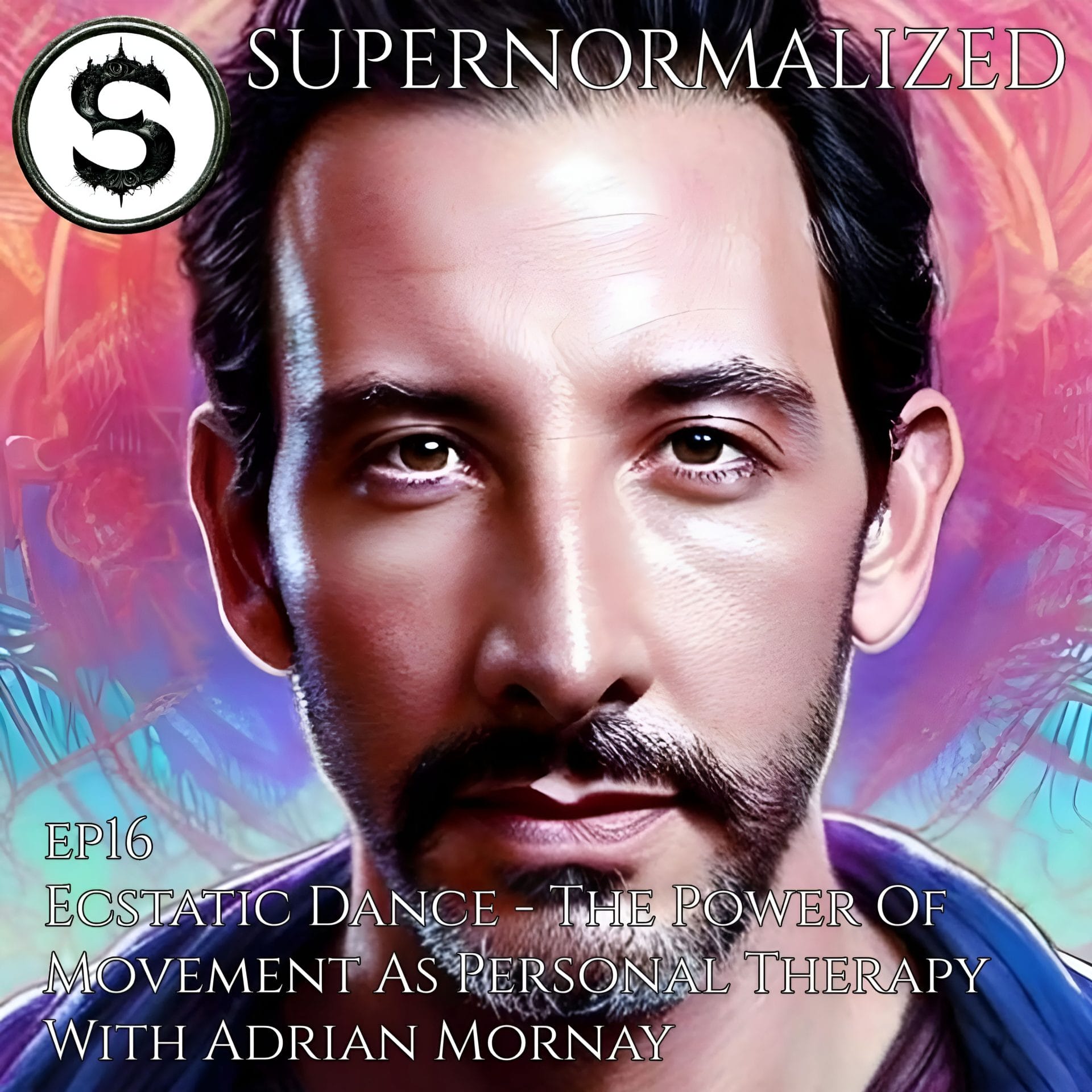Episode Transcript
[00:00:02] Speaker A: I'm going to let you in on a secret. Rats can smell landmines and tuberculosis and can be trained to do so. I know that's a weird way to start and I wanted to get your attention. So here we are with today's show of Super Normalized. I'm going to change it up a bit. I'm participating in podcast THON 2025, which is an effort by more than 1500 podcasters to highlight the amazing work by charities worldwide. Not many of you know this about me and I wanted to share this today. I like to travel and I do so at least once per year. I often choose countries that are a bit out of the way and last year my wife and I journeyed to Cambodia Cambodia's recent history is marked by the Khmer Rouge communist regime from 1975 to 1979, during which Pol Pot's government carried out a genocidal campaign that killed an estimated 1.6 to 2 million people through executions, forced labor and starvation. The regime fell in 1979 when Vietnam invaded, but Cambodia descended into a prolonged civil war throughout the 1980s and 1990s involving Vietnamese backed forces, anti communist factions and the remnants of the Khmer Rouge. During this time, all sides heavily used landmines, making Cambodia one of the most mined countries in the world with devastating consequences for civilians that persist right up to today. The with the Paris Peace Accords as recently as 1991 leading to UN sponsored elections and the establishment of a constitutional monarchy. Since then, Cambodia has rebuilt significantly through challenges like economic inequality, corruption and landmine clearance remain alongside efforts to bring the Khmer Rouge leaders to justice through international tribunals.
We chose Cambodia as from our brief Internet research that it seemed to be getting the rough end of the stick when it became a choice of travel. Because of this history, we traveled to Cambodia and met so many lovely people that we were astonished. Everyone was so nice in Phnom Penh and being geographically challenged, we realized we should also travel to Siem Reap to get a taste of a more rural kind of city. In little time, we moved the rest of our holiday period to Siem Reap and ventured to Angkor Wat and many other tourist attractions. One of the places we visited was Apopo.
Apopo is an unusual place. It's a place where they train rats to find landmines. The idea of seeing rats finding landmines intrigued us. Besides, they're also as large as my wife's pet dog.
At Apopo we learn so much about what they do in helping out the Cambodian people and others suffering from landmines. And as we holiday, we met so many people that have been affected by landmines. It really stuck with me and I was wishing I could do more. Then I learned about podcasts on 2025 and their mission to highlight amazing charities worldwide. And I knew for myself with Apopo, I had a match there. I reached out to their press team and secured a talk with Christophe Cox, who I am interviewing today. Christophe Cox is the CEO and founder of co founder of Apopo, a global nonprofit organization that trains African giant pouch rats to detect landmines and tuberculosis. With a background in product design and passion for humanitarian innovation, Christoph has led apopo's expansion from a research project into a pioneering force in mine action and early disease detection. Under his leadership, Apopo has deployed its hero rats in countries across Africa, Asia, Europe, saving lives and transforming communities. His dedication to science driven social impact continues to share Apopo's mission of creating a safer world. Now, without further ado, on with the show.
I know from the statistics that I have through YouTube and through other podcast apps that a lot of the listeners that I have aren't actually liking or subscribing. So if you could do me a really good favor like and subscribe because you're on YouTube and if you're on a podcast app, go and give me five stars. That way other people get to hear these great conversations too. Welcome to Super Normalize. Christophe Cox. Christophe, you're the CEO of apopo. Who is Apopo and how did Apopo come about? I mean, it's a great organization from my experience of it and the world needs to know more.
[00:04:41] Speaker B: Well, Apopo was born with the idea of training rats for landmine detection.
This idea came from my former colleague and classmate, Bart Vetjens.
And rats, of course, in analogy with dogs, also smell very well. But they are cheaper to train, cheaper to maintain. They love repetitive tasks. So that's where the idea came from.
When our government approved the ide, we did a two year feasibility study in Belgium.
We got some rats trained to find explosives in a big sandbox. And then we came to Africa, where in the southern part of Africa was a big landmine problem. We are based in Tanzania now, where our university had a long collaboration in the field of rodent research.
And it's here where we then developed the technology. Further, we use giant African pouch threads. These are a bit bigger rats. They can almost be 1 meter including the tail, and they can weigh up to one and a half Kilo, but they live for eight years. And they're also calm animals. They're typically night animals and they live in burrows underground, so they're fairly easy to train. And then the return on investment since they live eight years pays off.
[00:06:13] Speaker A: Wow, eight years. Wow. I didn't realize I lived that long. That's great.
And so were you a researcher in with rats before this? I mean, how did you get into this?
[00:06:28] Speaker B: Well, BART and me, we already had a project together. I was working in Kenya and the second of development and BART was in Belgium, he was fundraising for a project. So we formed an organization together.
Before that we were both students in the industrial design school where we also did projects around Africa and all that. And then we started, the two of us together with the biologists who took the research part for us. There was also a lot of developments in terms of, you know, we are developing cages for rats and equipment evaluation cages which are currently used, for example for the TB project.
So that's how it got started.
[00:07:22] Speaker A: Yeah, yeah. And what countries does your organization operate in now?
[00:07:28] Speaker B: Well, at the moment we are in quite some countries. So we are here in Tanzania. Our second biggest hub or even the biggest hub is in Cambodia where we both train rats and dogs. And we work in four provinces. Then we also in Angola, in Zimbabwe, in Ethiopia, in Senegal.
We aren't Turkey, we are in Azerbaijan and recently started in Ukraine. In Ukraine, only with dogs because of the climate.
[00:08:05] Speaker A: Yeah, right, right. And what effects is your work having on the problems with landmines in those countries?
[00:08:17] Speaker B: Well, our work has a big effect. You know, in, in land mine detection, the traditional method is they would search every square inch of the area, but there's simply no money for that. So we go through a process of land release which starts with non technical survey whereby you look at the mapping, you interview people, you check the hospital records, where have the accidents been. Then you go to technical survey where you bring a few assets in there in the area to quickly check where the actual minefield is. But in this technical survey process, that is where animals come in because they are fast gatherers of information.
And we have for example technical survey dogs which can go 25 meters through the bush. Or we have our rats, which in technical survey or the single rat is enough, you know, who can surge very quickly. So for example, in, in Mozambique we started in 2007 and we helped the country to be mind free. In 2015, Mozambique was the. And they were ahead of schedule. So Mozambique was the first majorly affected landmine country which became mine Free.
[00:09:36] Speaker A: Wow. Mine free. That's amazing. So how does that affect people's lives once a country is mine free? I mean, I guess that would mean that the people can just basically start doing their farming and their own businesses without fear.
[00:09:53] Speaker B: Well, on the high level in Mozambique there have been, you know, through aerial images you see the development by the villages and small towns starting to expand and to bloom and people can get back into agriculture and infrastructure development. But if you look in rural communities like in Africa, let's say on a human level, you live in a small place, you are refugee, internal refugee, you come back to your home after the war. Like I'm giving a scenario for Angola, for example, you know, now you have problems of even digging your land because there are landmines around. You have five children playing outside all the time. You know, you have to go for firewood. So you live under this constant terror and threat of. And imagine there's nothing worse than being afraid that when your kids are playing outside that their landmines around. So it's really both physical and, and psychological stress.
[00:11:01] Speaker A: Yeah, yeah. When I was on holidays in Cambodia, we were at Sim Reap and just one of the things I would do is just read the local news. And even in that week that I was there, there was a farmer that was blown up by a landmine that was, I think, landmine that was actually set for tanks. And he was on a tractor and it blew him up in the air and everything and he lost his legs and everything. So it was a bit of a disaster. But yeah, I can't imagine like having that sort of fear in life, you know, like, because I go bushwalking all the time, so, you know, I can't imagine what that would be like, having to have that fear just sitting in the background.
[00:11:42] Speaker B: Yeah. And those anti tank mines can stay around for a long time because they wouldn't explode if you step on them. You need indeed attractive to explode them. And what you have in Cambodia is there's such an enormous land pressure that you basically find people farming effectively in market land mine areas, you know.
[00:12:05] Speaker A: Oh no, right.
[00:12:08] Speaker B: That would just take the risk.
[00:12:11] Speaker A: Well, that's awful.
Yeah, risk, Right. Okay, so what's the. You were talking before and you said, I know that they're also used for detection of tuberculosis. How does that work?
[00:12:26] Speaker B: Well, tuberculosis is a very old disease and for hundreds of years we have been using microscopy to detect the tuberculosis in the sputum system sample.
But with microscopy you have to zoom in 60 times before you can say, okay, this sample is fifth of the mycobacterium tuberculosis. Now there's, of course, the new PCR methods and their rollout is ongoing.
So what we do, there are a lot of samples missed by the hospitals, especially in this part of the world, not only by microscopy, but also by the PCR method.
So, for example, in Tanzania, we work with 80 plus hospitals which we visit every day. We collect the sputum samples which have been checked by the hospitals. And where we get positive controls, we give them again to the rats. It's in a cage, in a bar with 10 holes, 10 sniffing holes, one after the other.
And a rat will say search hundred samples in about between 10 to 15 minutes. This would be the job of a lab technician for four days. And by doing so, the rat can pick out about 40 to 50% more patients than were found by the hospitals. And you have to know that these patients were sent home saying, oh, we don't find anything, you're negative. And those people will conclude infecting their families because a positive TB patient will infect on average 10 other people per year. So it's not only identifying those TB patients, but also preventing further infections because after two weeks of treatment, further infection will be stopped.
[00:14:21] Speaker A: Amazing, amazing. So early detection saves a lot more people, right?
[00:14:27] Speaker B: Because for TB, we have about 3 million cases per year in the world, about 1 1/2 million deaths.
We have as many deaths in a day, around 4,000. Compared to this is about the amount of landmine accidents in a year.
[00:14:48] Speaker A: Oh, God. Right, right.
And what's your vision for the future of apopo?
[00:14:55] Speaker B: Well, apart from being a humanitarian organization making social impact, we also do research and development.
Innovation is one of our core values. So currently we are working on new products. So we are currently trialing our rats for detection of illegally wildlife products, illegally exported wildlife products in the port of Dar es Salaam, for example, elephant tusk, rhino horn, pangolin scales. There's a big illegal trade between this part of the world in East Africa and Southeast Asia.
So with the rats, we could possibly intercept some of this trade because rats also get, get into the container. They can easily get on shelves and all that in the warehouses.
And then another project we are currently working on is using rats for detecting survivors after search and rescue, as part of search and rescue operations, so after earthquakes.
So we have developed a small backpack, tech backpack back for the rats with camera and communication provision so that the rat can go in the rubble film and the operator would have feedback, and we train them to go for the scent of human beings, give an indication when they find somebody and then come back to the operator. So for this project, we are currently preparing operational trials in Turkey, which has been, of course, a victim of major earthquakes in the last few years, historically.
So we hope that we can make a contribution in that field as well.
[00:16:48] Speaker A: Right, right. Yeah. Well, that's great. That's great. So you actually call your rats hero rats and.
Yeah. Why do you call them hero rats? I love that name. It just sort of sticks out.
[00:17:02] Speaker B: Well, basically they are heroes because they save a lot of human lives and, and they work hard and we had our hero at Magawa, which was awarded with the gold medal by. By a UK charity and became very famous, but he died meanwhile. Now he's followed up with Drawn and the public, in fact, they can adopt a rat on our website as a kind of token of support.
Nice monthly update of the work the rat is doing and what the project at large.
Great.
[00:17:39] Speaker A: I was just going to ask you about that. So how do people actually do that when they want to actually sponsor a rat or even donate to a popo?
[00:17:48] Speaker B: Well, there are many options on our website and there's a choice between a few rads, if people are more connected to the TB problem or the landmine problem. And we have a few rads up for adoptions. And then we give you updates of everything the RADS does, how many patients it will have detected, how many land mines it has find and all that and the impact on the community.
So it's, of course, without the public, we couldn't do it because the public school support helps us a lot to add on the. The support we get from foundations and governments.
[00:18:27] Speaker A: Nice. Nice. Yeah. Yeah.
Okay. Well, I just wanted to say thank you so much for coming on today, Christoph. I really appreciate it and what you've shared here around APOPO and what APOPO does. I'll provide for all the people that listened in the show notes, links to your organization, how they can donate and everything as well. And I thank you so much for the work. Work that you're doing in the world and that your hero rats are doing as well, because basically they're changing people's lives and not only the lives of people immediately, but all the people that come along after that. Because once those land mines are cleared and once the tuberculosis is discovered, that stuff's all gone. It actually breaks that chain that actually helps people to become more healthy.
[00:19:08] Speaker B: Thanks very much for having me and thanks for the support you're showing for our work. Very kind. Thank you.
[00:19:15] Speaker A: You're welcome. You're welcome. All right, I'll just say goodbye, listeners, and I'll get you to stay there.
I hope you enjoyed that brief interview with Christophe, CEO of Apopo. And if you're intrigued by his hero rats and what they can do for people worldwide, please donate to his charity.
You'll find those details in the show notes down below. And while you're there, like, and subscribe. It's free. And if you're on a podcast out, give us five stars as well. That'd be really nice. So thank you so much for listening. And until next episode, it's bye for now.
Sa.


